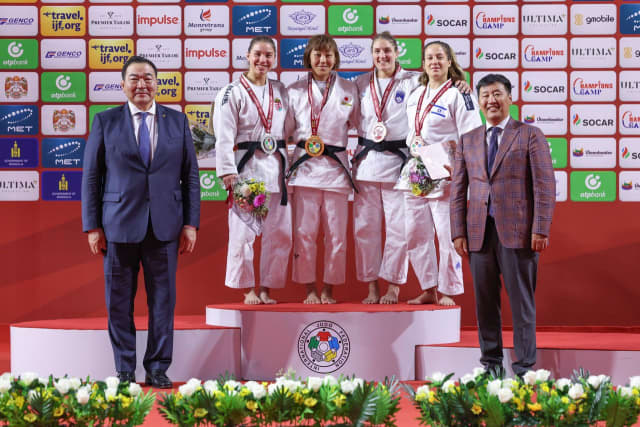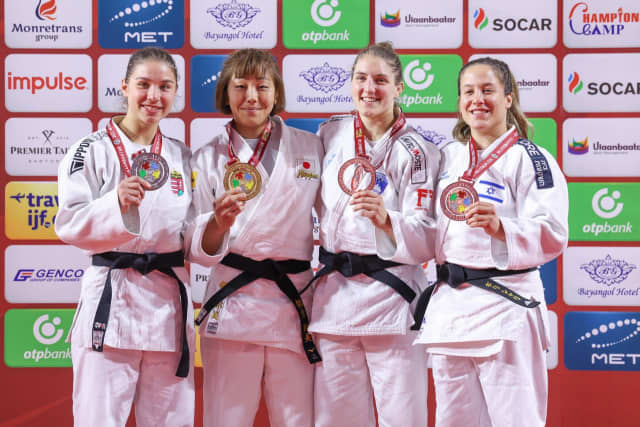In the semi-final, the Japanese judoka did not take too much time to win with some classic work on the ground against Inbal Shemesh (ISR).
At the bottom of the draw, Katharina Haecker thought she could repeat her performance from last week in Kazakhstan, where she reached the final. Unfortunately for her, she found Renata Zachova (CZE) on her way and it was the latter who qualified for the semi-final where she faced Szofi Ozbas (HUN), who after a difficult bout won by ippon to join Nabekura.
Nabekura celebrates with an appreciative Mongolian crowd 🇯🇵 🥇#JudoUlaanbaatar #Judo #Ulaanbaatar #Mongolia #Sport #OlympicQualifiers #RoadToParis2024 #WJT #Olympics pic.twitter.com/SLbXHsawqG
— Judo (@Judo) June 24, 2023
As the final started, Szofi Ozbas seemed slightly more active and stronger than her opponent, not enough to make a difference, just an impression. Since Nami Nabekura knew the feeling of being in the final of this specific grand slam, as she won here last year, she was waiting for the opportunity and step by step looked more active. The contest seemed quite balanced and was getting closer to the golden score period. 5, 4, 3, 3, 1 and waza-ari for Nami Nabekura with a de-ashi-barai that Ozbas didn't see coming. In judo everything is possible until the last second.
Andreja Leski (SLO) and Renata Zachova (CZE) qualified for the first match for a bronze medal. It was four minutes into the golden score time when Andreja Leski finally found an opportunity to throw her opponent with a rolling seoi-nage for ippon.
Israel, in great shape since the beginning of the tournament, offered themselves a new medal, since their two athletes, Gili Sharir and Inbal Shemesh faced each other; a little frustrating to meet your teammate for a medal, even if this offers the certainty of a podium finish for the country. In the end the medal went to Gili Sharir after Inbal Shemesh was penalised a third time.






